Cerebral Palsy, What, Why & How?
Tuesday, 21 April 2009
 For anyone who is interested, here is a great article on CP, Trojan...being the angel that he is, and always on the lookout for stuff like this for me...sent it over...it lays out the facts far better than I ever could.
For anyone who is interested, here is a great article on CP, Trojan...being the angel that he is, and always on the lookout for stuff like this for me...sent it over...it lays out the facts far better than I ever could.
http://www.bbc.co.uk/health/conditions/cerebralpalsy1.shtml
What is it?
There are several different types of cerebral palsy. While some people are severely affected, others have only minor disruption, depending on which parts of the brain have been damaged.
The main types of cerebral palsy are:
Spastic cerebral palsy - some of the muscles in the body are tight, stiff and weak, making control of movement difficult
Athetoid (dyskinetic) cerebral palsy - control of muscles is disrupted by spontaneous and unwanted movements. Control of posture is also disrupted
Ataxic cerebral palsy - problems include difficulty with balance, shaky movements of hands or feet, and difficulty with speech
Mixed cerebral palsy - a combination of two or more of the above
Deion has mixed cerebral palsy as such a large part of his brain was damaged.
What are the symptoms?
The symptoms of CP may take some months to become apparent and depend on the type.
There may be abnormal tone (stiffness or floppiness) of the limbs and odd postures.
In spastic cerebral palsy (70 per cent of cases), the limbs become stiff and may be drawn in. In athetoid cerebral palsy (10 per cent of cases), the child develops involuntary irregular writhing movements.
There may be incoordination of the muscles of the mouth, causing feeding problems such as slow feeding, gagging and vomiting, delayed motor milestones, such as crawling and walking, weakness or paralysis of the limbs, an abnormal gait and slowness in developing speech and social skills.
As many as one in three children and adolescents with cerebral palsy also has epilepsy.
Other common problems include:
Difficulty with walking, writing, eating, talking, dressing
Problems with balance and coordination
Difficulty controlling and maintaining posture (they may need help to sit upright)
Visual difficulties
Hearing problems A common misconception is that people with cerebral palsy inevitably have learning difficulties. This may have arisen because people with the condition can have problems controlling their facial movements and speech, and it can be difficult to understand them at first. Some people with cerebral palsy do indeed have moderate or even severe learning difficulties, but just as in the rest of the population, there's a range of intelligence.
A common misconception is that people with cerebral palsy inevitably have learning difficulties. This may have arisen because people with the condition can have problems controlling their facial movements and speech, and it can be difficult to understand them at first. Some people with cerebral palsy do indeed have moderate or even severe learning difficulties, but just as in the rest of the population, there's a range of intelligence.
What causes it?
It's easiest to think of cerebral palsy as a condition in which part of the brain hasn't developed properly. This might be because of a variery of events occurring before, during or after birth.
Most people think of cerebral palsy as a condition caused by problems during labour and birth. However, it's now generally accepted that complications at this time are an important factor in a only minority of cases, around one in ten.
The most common cause of cerebral palsy is something that damages the brain while the baby is growing in the womb. These antenatal factors can be found in 80 per cent of those affected and include genetic problems, malformations of the brain and maternal infection (rubella, toxoplasmosis).
Better maternity care has meant fewer babies are born with cerebral palsy due to birth trauma, but this has been offset by the improved survival of premature and low birthweight babies, who may be up to 50 times more at risk of cerebral palsy.
Infections when a baby is young (especially encephalitis or meningitis) can also lead to cerebral palsy.
In a number of cases, it's difficult to pin down the exact cause with any certainty.
What's the treatment?
There's no cure for cerebral palsy. However, there are plenty of treatments and therapies that can reduce the impact of the condition by easing symptoms such as spasticity, improving communication skills and finding other ways to do things.
Physiotherapy, occupational therapy and speech therapy can all play an important part. Find out more from Scope, a charity that focuses on cerebral palsy.
Children with cerebral palsy do best when they get special help from an early age. Because the brain changes a lot during the first few years of life, it can be difficult to assess the extent of cerebral palsy at first, but most experts suggest babies should be first assessed at about nine to 12 months.
Many children with cerebral palsy benefit from an approach known as conductive education, which helps them to overcome movement problems and gain some control through special education and rehabilitation. Adults can get a lot from it, too.
Speech and language therapy helps with speech development and also with eating, drinking, and swallowing.
Surgery is sometimes needed to correct any deformities that develop as a result of abnormal muscle development or function. Like Deion many children have their hamstrings lengthened to counteract the effects of the CP.
Medication can reduce muscle hyperactivity and spasticity, but physiotherapy is the bedrock of cerebral palsy management and can helps with posture and movement. It also tries to prevent progression of disability.
Occupational therapy helps children overcome difficulties performing everyday tasks, encouraging them to lead independent lives.
With help, most people with cerebral palsy are able to live much the same sort of lives as everyone else. They may have to work a bit harder to overcome practical problems, but most things are possible.



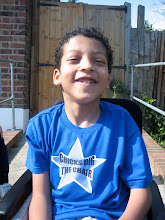.jpg)


















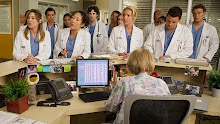























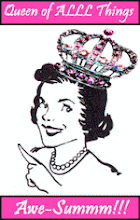
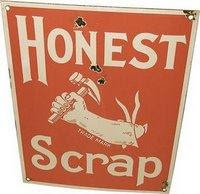







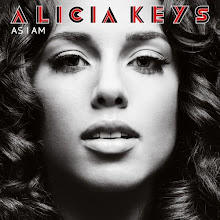



21 April 2009 at 09:46
A very informative blog and should help educate people to what cerebral palsy is and how it effects people. I would be interested in how charities like Scope help people with this condition and they have helped you help Deion.
Also what are your readers experiance or knowledge of CP? I must admit it was limited and I was badly informed until recently.
21 April 2009 at 13:24
how old was deion when he had the hamstring surgery?
thanks for the article. to answer trojan's question, i knew very little about cp prior to "meeting" you. you are such a wonderful advocate and ambassador, and i thank you!
21 April 2009 at 13:51
this was a lot of really good information! Thank you for sharing and letting us learn a little more about Deion
21 April 2009 at 16:08
That was great information. Knowledge is Power!
21 April 2009 at 16:40
that was very informative and should really help those that dont totally understand what cerebal palsy is and its effects on people. Deion is such a strong boy and I think he is very lucky to have a mom like you!! ((HUGZ))
21 April 2009 at 16:53
Great information - very informative. Thanks for sharing!!
22 April 2009 at 01:47
thank you for this.......I have such a good understanding now...something clearly I didn't understand before reading!!
THANKS
m
xoxo
22 April 2009 at 05:07
So informative for those of us out here that do not know much about CP. Thanks for letting us get to know more about Deion and I love the "chicks dig the chair" on your side bar!
Deion has a beautiful smile and glow about him.
22 April 2009 at 07:13
Sally--
I can only imagine what this information means for parents--education is critical--great post-c
22 April 2009 at 13:20
thanks everyone, deion is a special boy...of course I'm biased lol...i'm glad this was informative for everyone, its hard to get a good balance sometimes...
Deion was nine when he had his hamstrings done...we've never looked back, he can sit straighter and his stretches are a million times easier...he can stand by himself in the swimming pool now too...
23 April 2009 at 11:58
Our third son was dxed at age 2 with spastic cp. He was much more affected as an infant with major gross motor delays resulting from a stroke in utero. He is 8 now and he seems to be virtually unaffected, unless you watch him attempt a sport. Balance and coordination are always going to be issues, but he is the poster child for early intervention for mild cp.This post was great! I am a teacher and am always surprised at the lack of understanding of many conditions. Deion is lucky to have such a powerful advocate in his corner. He sounds like an amazing boy!
23 April 2009 at 14:28
thank you, he is amazing, and we are very lucky, he has such a huge affected area, we were told he would never smile, talk, hold his head...well, he certainly proved the docs wrong...
my god daughter, like your son is not really affected from everyday living, but she just seems clumsy, adn has a sort of OCD with certain things, but she deals really well...
you are obviously doing a fabulous job yourself xoxoxo